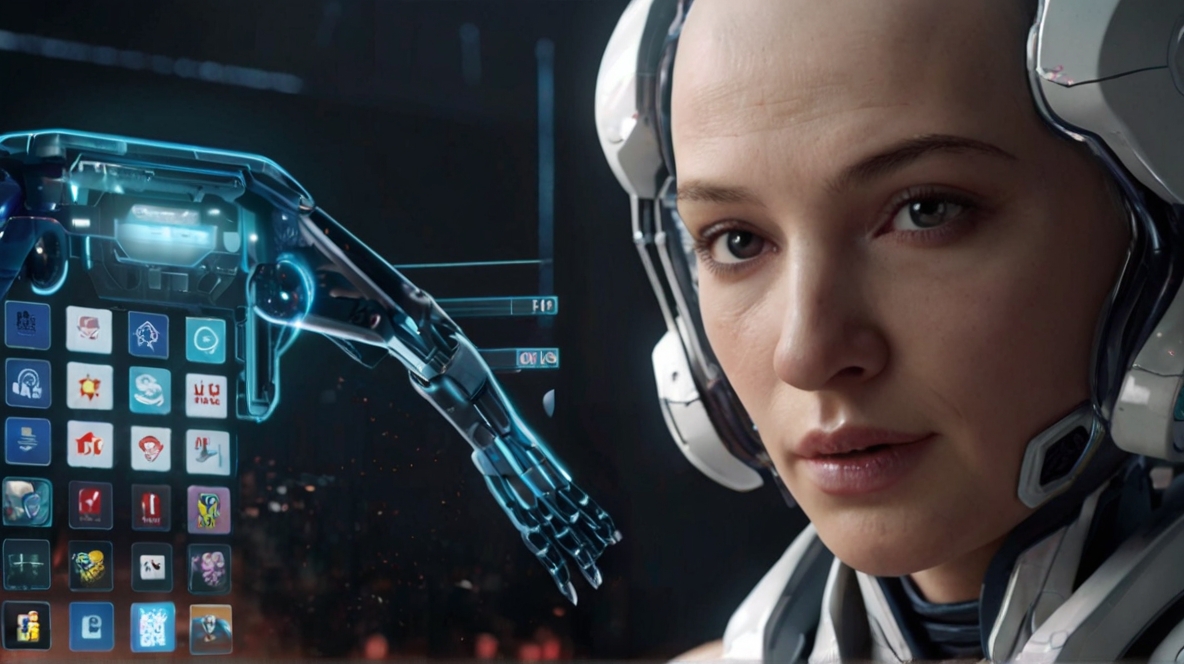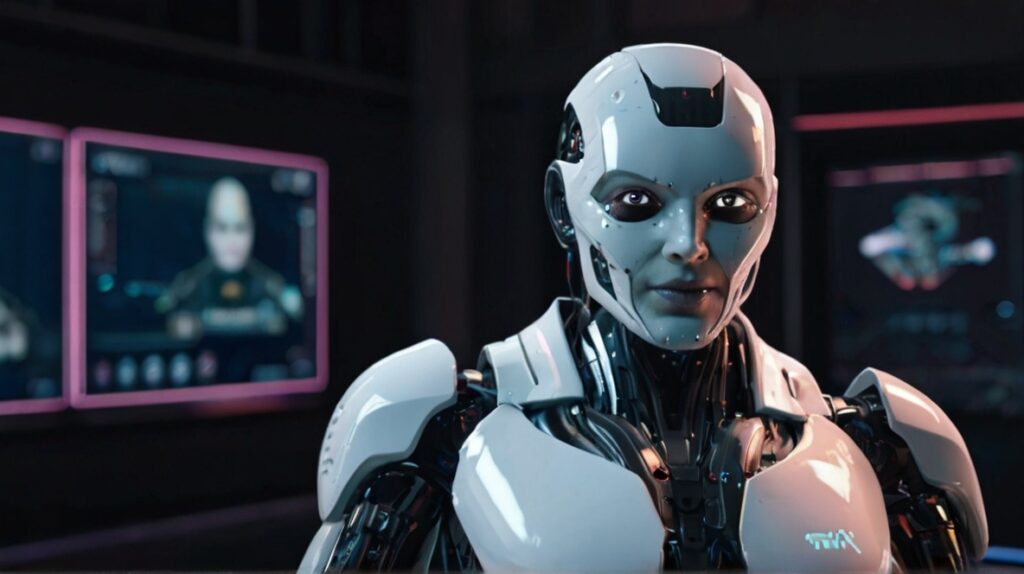
Amidst the ever-changing terrain of the gaming sector, where keeping pace with innovation is crucial, one technology emerges as a game-changer: Artificial Intelligence (AI). As we journey deeper into the future, the transformative influence of AI is reshaping the landscape of game development, gameplay, and player experiences. Here at Melior Games, we lead the charge in this revolution, leveraging the potential of AI to craft immersive and enthralling gaming adventures for players across the globe.
Procedural Content Generation: Redefining Game Worlds
AI is no longer just a buzzword; it’s a fundamental component driving the evolution of gaming. From procedural content generation to adaptive difficulty adjustment, AI algorithms are enabling developers to create dynamic, personalized gameplay experiences that cater to individual player preferences. This level of customization not only enhances player engagement. It also extends the longevity of games by keeping them fresh and exciting.
A Brief History of AI in Games
The integration of AI in gaming is not a recent phenomenon. As far back as the 1950s, early iterations of AI were being explored in games such as chess and tic-tac-toe. Over the decades, advancements in computing power and algorithms have fueled the evolution of AI in gaming, leading to more sophisticated and lifelike virtual opponents and allies. From the classic AI opponents in arcade games to the complex neural networks driving modern NPCs, AI has come a long way in shaping the gaming landscape.
Enhanced In-Game Interactions: The Rise of Intelligent NPCs
One notable effect of AI on gaming lies in its contribution to procedural content generation. Historically, game content like levels, maps, and quests required meticulous crafting by human designers. Yet, Artificial Intelligence algorithms have transformed this process, capable of autonomously generating expansive and varied game environments. This advancement opens up limitless possibilities and ensures unmatched replayability. Whether it’s crafting a sprawling open-world RPG or a fast-paced multiplayer shooter, AI-driven content generation equips developers with the tools to efficiently create immersive and diverse gaming experiences.
Moreover, AI is revolutionizing in-game interactions through advanced NPC (Non-Playable Character) behavior and intelligent enemy AI. Gone are the days of predictable adversaries. AI-driven NPCs can now adapt their tactics in real time, challenging players to think strategically and react dynamically. This level of sophistication not only enhances the overall gaming experience. It also blurs the lines between human and AI-controlled characters, creating more immersive and believable virtual worlds.
Current Situation: AI’s Ubiquitous Presence in Gaming
In the current gaming landscape, Artificial Intelligence has become pervasive, influencing every facet of the industry. From procedural content generation to analyzing player behavior, game developers rely on AI algorithms extensively. These algorithms aid in crafting dynamic and immersive game worlds, populated with intelligent NPCs, and tailoring player experiences using extensive data. AI stands at the core of shaping contemporary gaming experiences. There are refining game mechanics, elevating visual elements, or enhancing in-game interactions.
Impact of AI on Game Development and Design
The impact of Artificial Intelligence on game development and design cannot be overstated. AI-driven tools and techniques streamline the development process, allowing for faster iteration, enhanced creativity, and greater efficiency. Procedural content generation algorithms enable developers to create vast and diverse game worlds with minimal manual effort. In contrast, machine learning algorithms analyze player data to inform design decisions and optimize gameplay mechanics. Moreover, AI-powered engines and frameworks empower developers to push the boundaries of what’s possible in gaming, leading to more immersive and engaging experiences for players.

Data-Driven Development: Leveraging Player Insights
Technological developments are not only making games more enjoyable to play, but they are also changing the game creation industry. Developers may examine large amounts of player data and gain important insights into player behavior, preferences, and trends by using machine learning techniques. With this data-centric strategy, creators can better connect their games with their audience and increase their success and profitability by fine-tuning game mechanics, personalizing content, and optimizing monetization tactics.
Intellectual Property Concerns: Navigating the Legal Landscape
With the growing significance of AI in game development, intellectual property concerns have emerged as a significant issue for both developers and publishers. Debates surrounding the ownership of generated content, copyright infringement, and data privacy have intensified within the industry. While tools driven by AI offer opportunities for enhanced creativity and efficiency, they also bring forth legal and ethical considerations that demand careful attention.
Conclusion: Paving the Way for the Future of Gaming
In the future, AI’s potential in gaming will only grow. AI is set to constantly push the boundaries of gaming, from smooth cross-platform integration to immersive virtual reality. Our goal at Melior Games is to continue leading this technological revolution and to that end. Our goal is to enthrall gamers and reinvent the fundamental nature of gaming. It can be done by providing them with cutting-edge and inventive gaming experiences.
In conclusion, artificial intelligence is influencing the present as well as the future of gaming. Its revolutionary impact can be seen in the creation, enjoyment, and play of games, opening up hitherto unattainable levels of creativity, immersion, and customization. Accepting this technologically fueled growth, gaming’s future seems incredibly bright. We cordially invite you to join us at Melior Games as we spearhead the movement to open the door for the upcoming wave of AI-powered video games.




